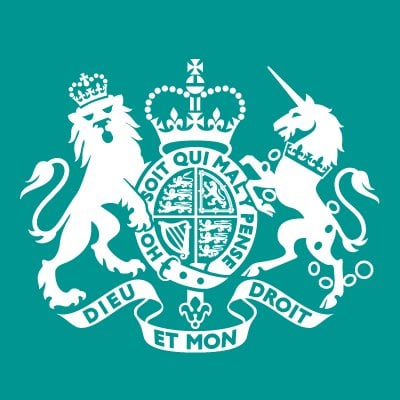
9:07 AM, 18th March 2020, About 4 years ago 1
Text Size
Rough sleepers, or those at risk of rough sleeping will be supported by £3.2 million of initial emergency funding if they need to self-isolate to prevent the spread of coronavirus (COVID-19).
The funding will be available to all local authorities in England and will reimburse them for the cost of providing accommodation and services to those sleeping on the streets to help them successfully self-isolate.
It is in addition to the £492 million committed in 2020 to 2021 to support the government’s ambition to end rough sleeping in this Parliament, a £124 million increase in funding from the previous year. This forms part of £643 million in funding to tackle homelessness and rough sleeping over the next four years.
This initial emergency response funding will ensure swift support is offered to people who are unable to self-isolate, such as those staying in night shelters or assessment hubs, as well as people who are currently sleeping rough.
Communities Secretary Rt Hon Robert Jenrick MP said: “Public safety and protecting the most vulnerable people in society from coronavirus is this government’s top priority. We are working closely with councils and charities to ensure they have the support they need throughout this period.
“The initial funding that I’ve announced today will ensure councils are able to put emergency measures in place to help some of the most vulnerable people in our society to successfully self-isolate.
“I would urge anyone who is concerned about someone sleeping rough to use the government’s StreetLink app to alert local support services who can reach out to those in need at this difficult time.”
The initial emergency funding represents an initial first step to help local authorities and frontline services put emergency measures in place. The government will continue to work closely with local authorities to keep this under review and ensure people have access to the support they need.
Public Health England (PHE) has also released guidance for providers of hostels and day centres on how to handle suspected cases of coronavirus to assist staff and visitors in dealing with the impact of the virus.
The guidance outlines:
Dr Yvonne Doyle, Medical Director at Public Health England said: “People sleeping rough are often in poor health and are particularly vulnerable. That’s why this funding is so important, ensuring that rough sleepers who get symptoms have somewhere safe and protective to stay, and helping to prevent the spread of the infection.”
Today’s announcement follows a raft of measures being introduced by the government to tackle the effects of the virus, including a range of new measures announced at Budget:
Engagement with councils is also ramping up as part of work to ensure that local government is fully prepared:
As well as continuing to work closely with councils, the Ministry of Housing, Communities and Local Government will also continue to work with PHE and the Department of Health and Social Care to monitor the situation closely and to ensure that the most vulnerable people in our society continue to get the support they need throughout this period.
Further information
Find the latest PHE guidance on social distancing
The government has committed to eliminating rough sleeping by the end of the Parliament and last year the number of people sleeping rough fell for the second year in a row.
This funding is in addition to the £492 million the government will provide to tackle homelessness and rough sleeping in 2020 to 2021, including up to £112 million for the Rough Sleeping Initiative.
Local authorities will claim costs incurred from government. Each local authority will be notified as to the provisional maximum amount it is entitled to claim back, which is calculated based on the number of rough sleepers reported in the Autumn 2019 snapshot.
The government expects most of the £500 million Hardship Fund to be used to provide more council tax relief, either through existing Local Council Tax Support schemes, or through similar measures. We will set out more detail on this funding, including allocations, shortly.
HM Treasury has published a factsheet on measures announced at the Budget to support those affected by Covid-19.
On 9 March, the government launched a new taskforce of experts to bolster the local resilience response to coronavirus, chaired by Andy Battle, the former chair of West Yorkshire’s local resilience forum and Dr Ruth Hussey CB OBE, the former Chief Medical Officer for Wales. Read more information on the taskforce.
The public can also do their part to help vulnerable rough sleepers by creating an alert on StreetLink. This tool, part-funded by the Ministry of Housing, Communities and Local Government, will share this information with local support services who can reach out to those in need.
StreetLink can be accessed via the app or online: www.streetlink.org.uk/
StreetLink is not an emergency service, if you think the person you are concerned about is in immediate danger or needs urgent care, please call 999.
Previous Article
He's absolutely crackers!Next Article
Covid19 and Gas safety Certificates?
Robert M
9:01 AM, 19th March 2020, About 4 years ago
Where are all the properties going to suddenly appear from?
Councils have no spare housing stock, most has been sold off, and there are already thousands of people on their housing waiting lists.
Councils' emergency accommodation is full to capacity due to the steady rise in homelessness, due to Universal Credit and other issues.
So where exactly are all these hundreds/thousands of extra self-contained properties needed for self-isolation, going to come from?
Are Councils going to be able to requisition student accommodation? - ohh, no, that wouldn't work because most of that is shared accommodation, i.e. shared communal facilities, okay so perhaps hotel rooms then? - no, that is no good as they're not self-contained as there are no cooking facilities.
Any ideas, anyone?